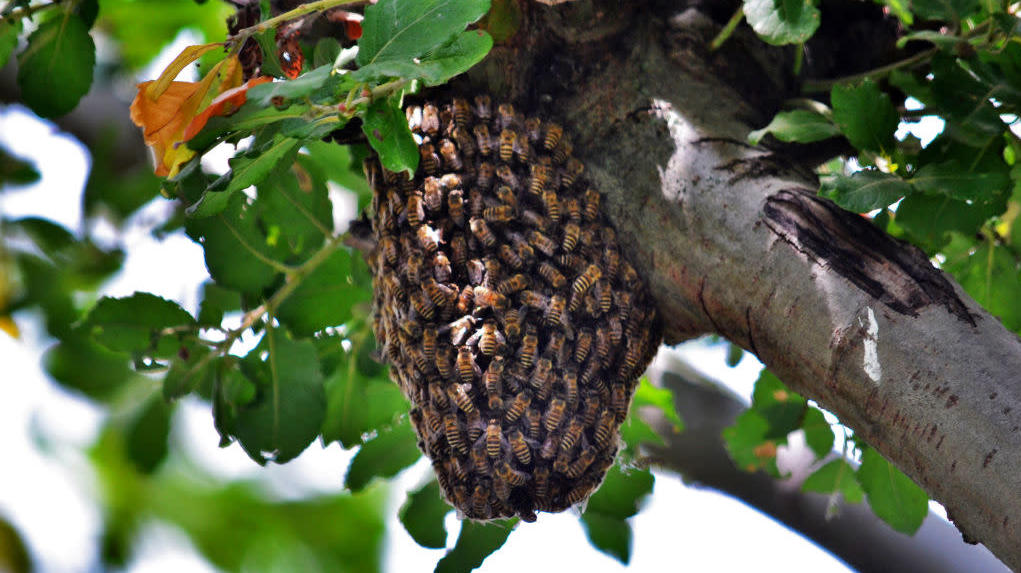Science Proves Our Prehistoric Ancestors Were Positively Abuzz Over Honey
Around 70,000 years ago, some of our early ancestors in southern Africa decided that their cave could use a little special something to class up the joint. They discovered that grinding up bones, ochre, charcoal, and water produced a rather fetching red paint, thus becoming our species' first interior designers and kicking off a movement that inspired artists across Africa to deck out their caves with stunning portraiture, geometric designs, and depictions of wildlife—like the ever beloved honeybee.
Though their surviving artwork implies these ancestors were simply wild about the sweet taste of local honey, this apparently wasn't good enough for science, which demanded hard, tangible evidence of this alleged old timey honey lovin'. Now it seems we have the proof we need, as a team of scientists from the University of Bristol in the U.K. (with an assist from Goethe University in Frankfurt, Germany) have found evidence of beeswax in the prehistoric pots of the Nok people of Central Nigeria.
According to their findings, published in the scientific journal Nature Communications, a lipid residue analysis of 458 prehistoric pottery vessels showed that over one-third were used to store honey and beeswax, proving that Africans have been harvesting it from wild honeybees for at least 3,500 years.
As remarkable as this discovery is, the ancient honey residue was an accidental find. "We originally started the study of chemical residues in pottery sherds because of the lack of animal bones at Nok sites, hoping to find evidence for meat processing in the pots," said Professor Peter Breunig from Goethe University who is the archaeological director of the Nok Project and co-author of the study. "That the Nok people exploited honey 3,500 years ago, was completely unexpected and is unique in West African prehistory."
In modern Africa, the sale of products like beeswax, honey, and pollen are big business, as is the commercial breeding of honeybees; it's estimated that up to one-third of all food produced on the continent is dependent on honeybee pollination. Wild honey is also a vital source of food for many uncontacted indigenous peoples, such as the Efe of the Ituri Forest and the Okiek people of Kenya. It's thought that Africans' millennia of beekeeping knowledge is one of the reasons why the continent's honeybees have not been catastrophically affected by Colony Collapse Disorder, unlike in America, where it only takes us about three months to obliterate 50 billion (yes, billion) bees. U-S-A! U-S-A!
